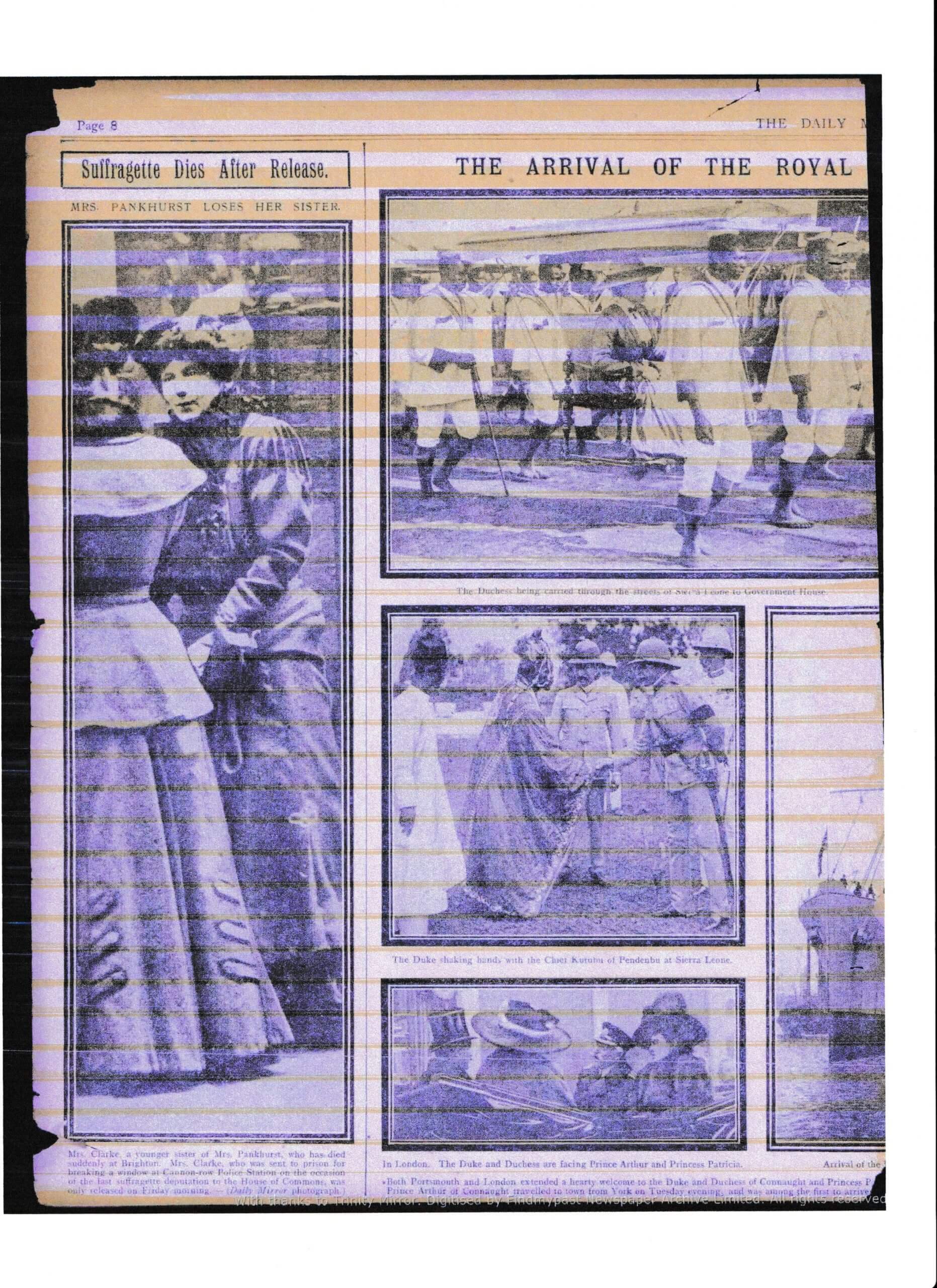Our patron Elizabeth Crawford, one of the foremost historians of the suffrage movement, recently sent us a photograph of Mary we hadn’t seen before. Elizabeth had found it in the newly digitised records of the Daily Mirror of 29th December 1910, published just days after Mary’s death. We were very excited. We only had 5 decent images of this very retiring woman to show to the sculptor and so to us a new photograph is like gold dust.

Unlike her charismatic sister Emmeline Pankhurst (whom Mary supported in a myriad different ways, from undertaking her paid duties as a Registrar to caring for her children) Mary preferred to tirelessly organise in the background rather than take centre stage. She also seems to have avoided posing for photographs. This unposed shot of Mary reveals her talking to another woman, apparently relaxed and completely unaware of the camera. We don’t yet have a good copy of the photograph, but please see the attached image.
The photograph in the Daily Mirror accompanied a fascinating article about Mary’s death. The copy is very hard to read, so the text is reproduced here. It highlights both her leading role in Brighton and her importance in raising morale amongst prisoners. What emerges from many testimonies given after her death is that Mary was deeply loved by other suffragettes. She looked after them and they admired her calm good humour and bravery.
A WSPU official who is quoted speculates that her death may have been precipitated by a “weak heart”. In fact, it later emerged, she had died of a brain haemorrhage. The article reads as follows:
DEATH AFTER RELEASE – Mrs Pankhurst’s Sister, Freed from Prison, Dies Suddenly
Mrs Marie Clarke, a younger sister of Mrs Pankhurst, died, it was yesterday reported, on Christmas Day.
Mrs Clarke was, together with sixteen others, on November 21 sentenced to a month’s imprisonment for breaking a window at Cannon Row police station on the occasion of the last suffragette raid (this word is illegible so may be incorrect) on the House of Commons.
She was released from Holloway gaol on Christmas Eve, and, after being entertained ata luncheon at the Criterion Restaurant, left for Brighton. She returned from there on Christmas day, and died suddenly in London.
“Mrs Clarke‘s loss is a great one to the cause especially where Brighton is concerned.“ said an official of the Women’s Social and Political Union to The Daily Mirror yesterday.
“Without approaching her older sister’s power as an orator, she did an immense amount of splendid service, and she was the leader of the women’s franchise movement in Brighton.
“Altogether she went to prison three times, and on each occasion she was a great favourite with her fellow prisoners. Always when she got the chance during exercise hours she would whisper words of cheery encouragement and hope to them. Her great work was done away from the platform.
“I saw her on the night of her last arrest, and, although she did not then complain of any unduly rough treatment, I thought she looked very worn out. She had, I believe, a weak heart.”
Mrs Clarke is to be buried today. (Taken from the Daily Mirror of 29 December 1910).

